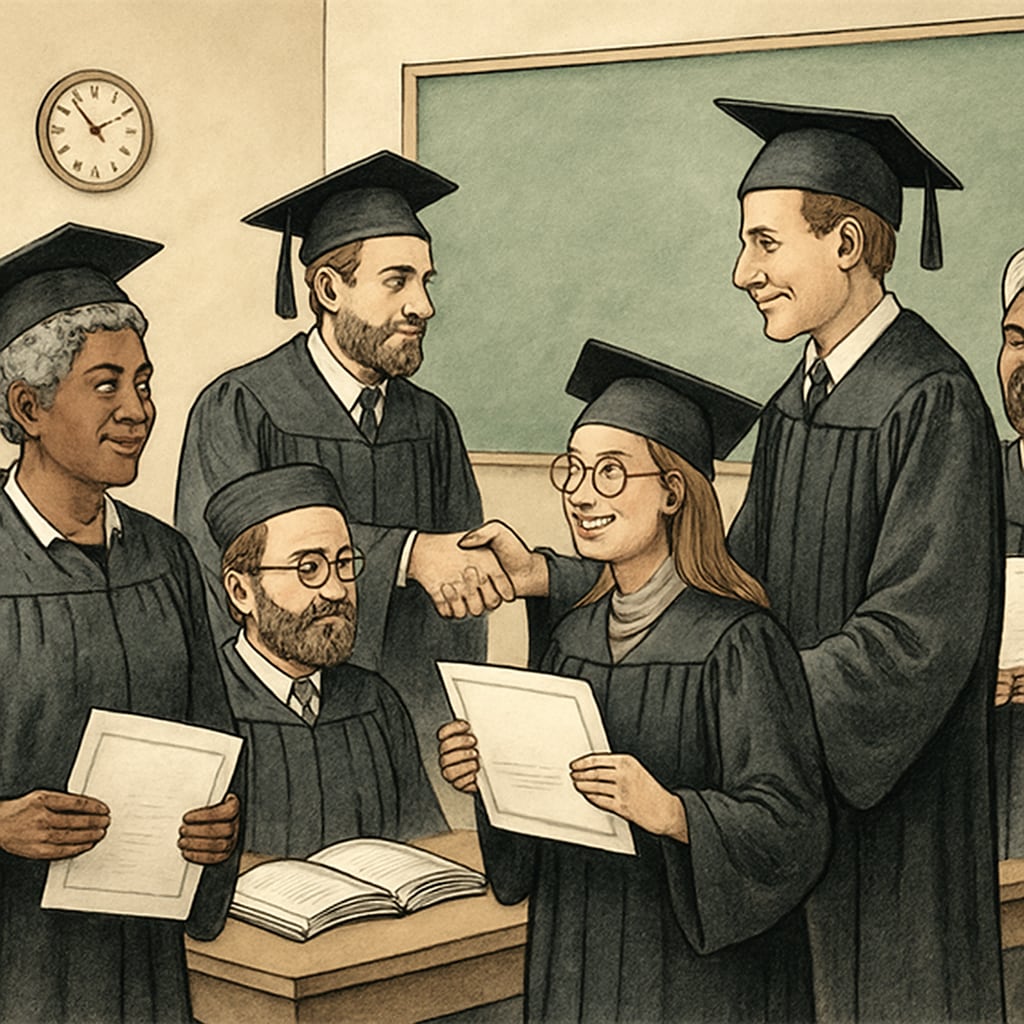In the state of Arizona, a perplexing employment policy has emerged, creating a paradox within the education and job markets. Employers require applicants to present a high school diploma or GED (General Educational Development) certificate, even if they hold advanced college degrees. This peculiar requirement raises significant concerns about the value of higher education, the alignment of educational systems with employment needs, and the potential for unintentional employment discrimination.
The Roots of the Paradox: Why a College Degree Is Not Enough
In most states, a college degree is considered a higher qualification than a high school diploma. However, in Arizona, the state employment policy explicitly mandates that individuals must possess a high school credential to qualify for certain jobs, regardless of their additional academic achievements. This policy has caught many by surprise, especially those who pursued nontraditional educational paths or international students whose academic credentials may not fit neatly into conventional frameworks.
This policy is rooted in the idea of “minimum qualifications.” Hiring managers argue that a high school diploma or GED demonstrates fundamental skills such as literacy, numeracy, and discipline that are assumed to be foundational for any role. However, this rigid framework overlooks the reality that a college degree encompasses and surpasses these competencies. For example, higher education institutions often require proficiency in these basic skills as a prerequisite for admission.

Impact on Nontraditional and International Candidates
The policy disproportionately affects nontraditional students, such as individuals who pursued higher education without completing high school or those who earned their qualifications abroad. For example, international students often face difficulties translating their academic credentials into terms that align with U.S. standards. A bachelor’s or master’s degree from a foreign institution may not include an equivalent to a high school diploma, potentially disqualifying these candidates under Arizona’s current rules.
Additionally, this policy may inadvertently discriminate against individuals from underprivileged backgrounds who may have bypassed traditional schooling routes in favor of accelerated or alternative education programs. The demand for a high school diploma as a prerequisite seems to ignore the evolving landscape of education and the diverse pathways individuals take to acquire knowledge and skills.
Does This Policy Reflect Employment Discrimination?
The exclusionary nature of this policy has prompted debates about whether it constitutes employment discrimination. Requiring a high school diploma even for highly qualified candidates could unintentionally penalize those who have already demonstrated advanced capabilities. As a result, the policy may conflict with the principles of equal employment opportunity, which emphasize assessing candidates based on their ability to perform the job rather than their educational background alone.
Furthermore, this policy could discourage individuals from pursuing higher education, as it devalues advanced degrees in favor of a credential that is essentially a stepping stone. For employers, this may also limit the talent pool, as qualified candidates are excluded purely due to a technicality. According to a report by the educational system experts at Britannica, the rigid qualification frameworks often fail to account for the diverse skills and experiences brought by nontraditional candidates.

How Can Policy Be Reformed?
To address this issue, Arizona policymakers and employers should consider revising the current employment regulations to account for the value of higher education. Here are some potential reforms:
- Allow college degrees to substitute for high school diplomas in cases where candidates have demonstrated advanced skills and qualifications.
- Implement a credential evaluation system for international degrees to ensure fairness for foreign-educated candidates.
- Promote flexibility in evaluating educational backgrounds, taking into account alternative learning pathways such as online certifications or vocational training.
These measures would not only align employment policies with the realities of modern education but also foster a more inclusive and equitable workforce.
Conclusion: Bridging the Gap Between Education and Employment
The ongoing debate about Arizona’s employment policies highlights a larger issue within the intersection of education and the job market. By prioritizing high school diplomas over college degrees, the current system risks undermining the value of higher education and excluding capable individuals. Reforming these policies is essential to build a workforce that recognizes and values diverse educational backgrounds, ensuring that no one is left behind due to outdated qualification requirements.
As education evolves, so too must our policies. Aligning employment requirements with modern educational pathways is not just a matter of fairness—it is a critical step toward a more competent and inclusive society.


